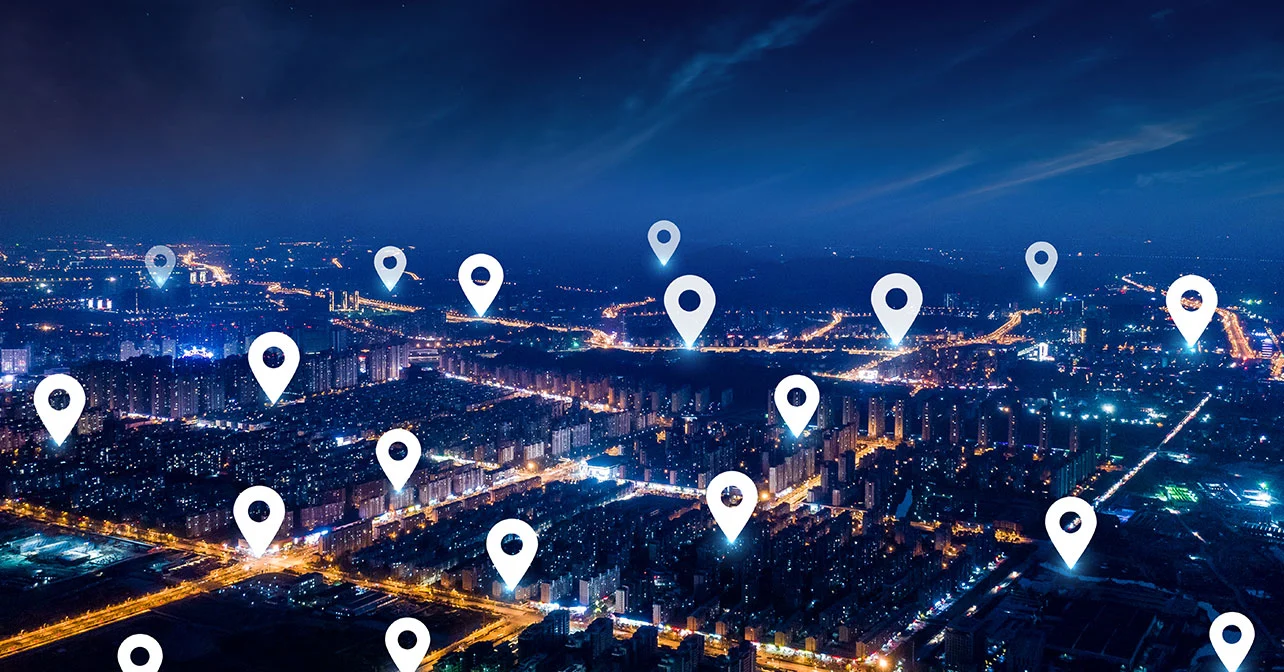What is Location Intelligence? Definition and Use Cases


In the last few years, there has been a significant rise in the use of geospatial data, driven by advances in technology and the availability of large datasets. Using tools like Geographic Information Systems (GIS) and spatial analysis tools, businesses can now integrate geospatial data with other types of data such as human movement data to better understand consumer behavior or human mobility patterns.
What is Location Intelligence?
Location intelligence is the combination of geospatial data and business intelligence that enhances decision-making for multiple industries. It involves the collection, integration, and analysis of data from multiple sources including geospatial data to generate insights that can informthe decision-makingin a variety of fields, including retail, restaurant, government, or even public healthcare.For example, location intelligence helped experts analyze and understand how the Covid-19 pandemic spread to help inform strategies to minimize outbreaks.
What Type of Data is Used in Location Intelligence?
Geospatial data forms the spatial aspect of location intelligence. This can be integrated with many different types of data. Below are a few examples:
1. Demographic Data:
This is information on the population and characteristics of the residents of a particular area, such as age, gender, education, income, occupation, and more.
2. Social Media Data:
This includes information from social media platforms including Twitter, Instagram, and Facebook and contains insights into the trends for different locations, what content people like or interact with, or what is being discussed in a specific area. For example, Twitter users can choose to explore trends based on their country of residence or interest.
3. Business Data:
This includes information on the businesses in the area including the number, type, size, industry, and more.
4. Environmental Data:
This includes information on the physical characteristics of an area including weather patterns, air, and water quality, and natural resources.
5. Market Data:
This includes information about the goods and services available in a particular area, what is in demand, sales and profit numbers, and more. This information can help businesses identify the need for services or products in particular areas, inform expansion strategies, and more.Using these types of data, decision-makers can use location intelligence to identify patterns and trends, predict future trends, and make informed decisions about everything from business strategy, and marketing to emergency response.
Location Intelligence Use Cases
There are many potential use cases for location intelligence across different industries and sectors. Here are four important examples where location intelligence has been used to achieve success:
1. Location Intelligence for Retail:
Location intelligence can be a powerful tool for retail businesses, enabling them to understand their customers better and optimize their operations. Retailers can use location intelligence to understand customer demographics, behaviors, and preferences in different areas or locations. This can help them tailor their marketing efforts and product offerings to specific locations and customer segments, location intelligence can also be used to inform the site selectionprocess, which can be crucial for success. Retailers can use location intelligence to optimize their supply chain operations, such as by identifying the most efficient delivery routes or locating warehouses in strategic locations.
2. Location Intelligence for Restaurants:
Similar to retail businesses, restaurants can use location intelligence to analyze customer preferences and wants in a specific area to tailor their menus and marketing efforts to target customers more effectively. Restaurants can also use location intelligence to identify the right target audience and select the ideal location for their business. QSRs like McDonalds or Taco Bell that are focused on takeaway or online delivery can use location intelligence to identify a location based on the most efficient routes for delivery drivers or by locating their delivery hubs in strategic locations.
3. Location Intelligence for Marketing/Advertising:
Location intelligence can be used to optimize marketing or advertising campaigns based on consumer demographics in the target area or target specific audiences when they are close to the brand’s store or near a competitor's store. Advertisers can also optimize their location-based marketingcampaigns for better ROI by using location intelligence to identify better-performing locations for OOH advertisements.4. Location Intelligence for Commercial Real Estate: Real estate companies can use location intelligence to identify trends and patterns in the housing market, such as popular neighborhoods or upcoming developments in areas that could attract residents and more. It can also be used to inform business and marketing strategies.
Benefits of Location Intelligence
There are many benefits of using insights from location intelligence to inform the decision-making process. Below are a few examples:
1. Improved Decision-Making:
Location intelligence enables organizations to make more informed and accurate decisions by providing a spatial context for data analysis. This can lead to more effective strategies and better outcomes. For example, retail brands can use location intelligence to identify where their customers go before or after they visit their store or identify which competitor brands they might also be interested in.
2. Enhanced Efficiency:
Location intelligence can be used to optimize processes and reduce costs, such as by identifying the most efficient delivery routes for a logistics company or identifying areas with a high concentration of target customers for a retailer. Marketers or advertisers can use location intelligence to identify and target areas or neighborhoods with the most foot traffic for outdoor or geo-location-based advertising.
3. Improved Customer Service and Personalization:
Insights from location intelligence can improve customer service by providing personalized experiences and recommendations based on a customer's location. Marketers and advertisers can also use location intelligence to modify messaging based on the consumer’s location.
4. Increased Competitiveness:
Location intelligence can give organizations a competitive advantage. For example, retail brands can use location intelligence to answer key questions on who their competitor’s customers are, where they are from or what time of day or day of the week is the busiest time at the competitor’s store.Location intelligence can be a powerful tool for businesses across industries. Decision-makers can now understand their customers like never before, analyze and predict future trends and answer key questions that eliminate risks and increase the chances of success.
Want to know what location intelligence can do for your business? Sign up for a demo here